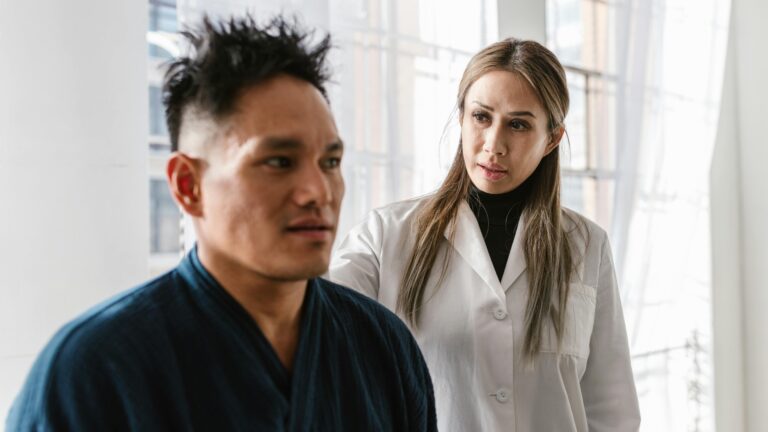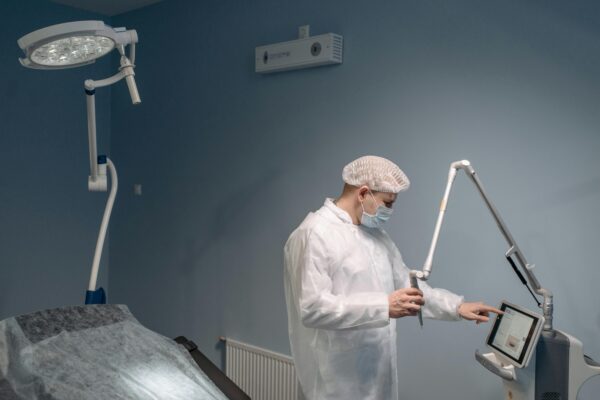- Understanding Prostate Hormone Therapy
- How Prostate Hormone Therapy Works
- Who Needs Prostate Hormone Therapy?
- Side Effects: What to Expect
- Managing Side Effects Like a Pro
- How Long Do You Need Hormone Therapy?
- Can You Boost Testosterone After Therapy?
- Final Thoughts: Taking Charge of Your Health
- FAQs: Prostate Hormone Therapy
- Question: What is prostate hormone therapy?
- Question: Who needs prostate hormone therapy?
- Question: How does prostate hormone therapy work?
- Question: What are the side effects of hormone therapy?
- Question: Can hormone therapy cure prostate cancer?
- Question: How long does prostate hormone therapy last?
- Question: Can testosterone levels return to normal after stopping therapy?
- Question: Are there ways to manage the side effects of hormone therapy?
Understanding Prostate Hormone Therapy
When it comes to treating prostate cancer, hormone therapy—also known as androgen deprivation therapy (ADT)—plays a significant role. This treatment focuses on reducing or blocking testosterone and other androgens, which fuel prostate cancer growth. While it’s not a cure, it can slow tumor progression, shrink cancerous cells, and improve survival rates in many cases.
Now, let’s get real for a second. If you’ve been told that you need hormone therapy for your prostate, your first thought is probably, What’s this going to do to me? Right? We get it—messing with hormones doesn’t sound fun. But understanding the process can help you take control of your treatment rather than letting it control you.
How Prostate Hormone Therapy Works
Your body produces androgens, primarily testosterone, in the testicles and adrenal glands. These hormones fuel prostate cancer cells, helping them grow and spread. Hormone therapy works by cutting off this fuel supply in one of the following ways:
1. Androgen-Suppressing Medications
- Luteinizing Hormone-Releasing Hormone (LHRH) Agonists and Antagonists
These drugs tell your body to stop making testosterone, essentially putting you in a state similar to chemical castration. Examples include:- Leuprolide (Lupron)
- Degarelix (Firmagon)
- Triptorelin (Trelstar)
- Anti-Androgens
These meds block testosterone from binding to prostate cancer cells, making it harder for them to grow. Some common ones include:- Flutamide (Eulexin)
- Bicalutamide (Casodex)
- Enzalutamide (Xtandi)
- Androgen Synthesis Inhibitors
These stop testosterone production at its source.- Abiraterone acetate (Zytiga) is a common option.
2. Orchiectomy (Surgical Castration)
For men who want a one-and-done solution, an orchiectomy (removal of the testicles) completely eliminates testosterone production. While effective, this is a permanent procedure—a decision not to be taken lightly.
3. Intermittent Hormone Therapy
Instead of staying on treatment indefinitely, some men take hormone therapy in cycles. This approach can help reduce side effects while still keeping the cancer in check.
Who Needs Prostate Hormone Therapy?
Doctors typically recommend hormone therapy for men with:
- Advanced or metastatic prostate cancer (cancer that has spread beyond the prostate).
- Recurrent prostate cancer (if the cancer comes back after surgery or radiation).
- High-risk localized prostate cancer (as a supplement to radiation therapy).
If you’re wondering whether hormone therapy is right for you, your doctor will consider factors like your PSA levels, Gleason score, and overall health.
Side Effects: What to Expect
Okay, let’s get into the real talk. Hormone therapy isn’t a free ride. When you mess with your testosterone levels, things are bound to change. Here’s what you need to watch out for:
1. Sexual Side Effects
- Lower libido: Your sex drive might take a hit.
- Erectile dysfunction: Some men find it harder to maintain an erection.
- Shrinkage: Yep, testicles can shrink. Not exactly the news any man wants to hear.
2. Physical Changes
- Weight gain: Fat loves to take over when testosterone drops.
- Muscle loss: You may notice it’s harder to stay strong.
- Breast growth (gynecomastia): Some men develop enlarged breast tissue.
3. Mood and Cognitive Effects
- Depression or mood swings
- Brain fog and memory issues
- Increased fatigue
4. Bone and Heart Health Risks
- Osteoporosis (weakened bones)
- Increased risk of heart disease and stroke
Managing these side effects with lifestyle changes, exercise, and medications can help you keep some control over your body and mind.
Managing Side Effects Like a Pro
If you’re thinking, Well, that sounds miserable, don’t worry—there are ways to fight back.
1. Exercise Like Your Life Depends on It (Because It Does)
Strength training and cardio can help combat muscle loss, weight gain, and fatigue. Aim for at least 150 minutes of moderate exercise per week.
2. Eat Smart
- Protein: Helps preserve muscle.
- Calcium & Vitamin D: Protects your bones.
- Anti-inflammatory foods: Helps fight fatigue.
3. Consider Medications
- Bone-strengthening drugs (bisphosphonates, denosumab)
- Erectile dysfunction meds (Viagra, Cialis)
- Antidepressants (if mood swings hit hard)
4. Stay Social & Engaged
Talk to a support group, friends, or a therapist. It helps more than you think.
How Long Do You Need Hormone Therapy?
The duration of treatment depends on your cancer stage and response to therapy:
- For localized cancer: 6 months to 3 years
- For recurrent or advanced cancer: Ongoing or intermittent treatment
Many men cycle on and off treatment to give their bodies a break.
Can You Boost Testosterone After Therapy?
Once you stop treatment, testosterone may recover—but it can take months or even years. Some men never fully regain their levels, so talk to your doctor about options like:
- Testosterone Replacement Therapy (TRT) (if safe)
- Natural approaches like diet and exercise
Final Thoughts: Taking Charge of Your Health
Listen, prostate hormone therapy isn’t the easiest ride, but if it helps you live longer and keep cancer in check, it’s worth considering. The key is staying informed, managing side effects, and keeping a proactive mindset.
If your doctor suggests hormone therapy, ask all the right questions:
- What’s my best treatment plan?
- How long will I need this therapy?
- What are my options for managing side effects?
At the end of the day, you’re in control of your health. Stay sharp, stay active, and keep fighting—because no one fights alone.
Studies on Prostate Hormone Therapy
Here are some credible studies and clinical trials that provide deeper insights into prostate hormone therapy and its effects:
1. Androgen Deprivation Therapy and Survival Rates
- Study: Long-term Survival Benefits of Androgen Deprivation Therapy in Advanced Prostate Cancer
- Findings: This study shows that ADT significantly improves survival rates in patients with metastatic prostate cancer, especially when combined with radiation therapy.
- Source: Journal of Clinical Oncology
2. Side Effects and Quality of Life
- Study: Quality of Life in Men Undergoing Hormonal Treatment for Prostate Cancer
- Findings: This research highlights the physical and psychological side effects of hormone therapy, such as loss of libido, fatigue, and emotional changes.
- Source: National Institutes of Health (NIH)
3. Hormone Therapy vs. Surgery Outcomes
- Study: Comparative Analysis of Orchiectomy and Pharmacological Hormone Therapy
- Findings: The study indicates that both surgical and chemical castration offer similar outcomes, but patients on pharmacological treatments report better emotional well-being.
- Source: The Lancet Oncology
4. Intermittent vs. Continuous Therapy
- Study: Effectiveness of Intermittent Androgen Deprivation Therapy
- Findings: This clinical trial suggests that intermittent therapy can maintain cancer control while reducing long-term side effects and improving quality of life.
- Source: New England Journal of Medicine (NEJM)
5. Bone Health and ADT
- Study: Impact of Androgen Deprivation Therapy on Bone Density
- Findings: ADT is linked to increased osteoporosis risk. This research emphasizes the importance of calcium and vitamin D supplementation during treatment.
- Source: Journal of Urology
6. Cardiovascular Risks
- Study: Cardiovascular Complications in Men Receiving Hormone Therapy
- Findings: This study outlines an increased risk of heart disease and stroke for men undergoing long-term hormone therapy.
- Source: American Heart Association (AHA)
FAQs: Prostate Hormone Therapy
Question: What is prostate hormone therapy?
Prostate hormone therapy, also known as androgen deprivation therapy (ADT), is a treatment that lowers testosterone levels to slow or stop the growth of prostate cancer cells.
Question: Who needs prostate hormone therapy?
It is typically recommended for men with advanced or metastatic prostate cancer, recurrent prostate cancer, or as an additional treatment for high-risk localized cases.
Question: How does prostate hormone therapy work?
The therapy reduces testosterone production either through medications such as LHRH agonists and anti-androgens or by surgical removal of the testicles (orchiectomy), preventing cancer cells from growing.
Question: What are the side effects of hormone therapy?
Common side effects include reduced libido, erectile dysfunction, weight gain, muscle loss, fatigue, mood changes, hot flashes, and an increased risk of osteoporosis and heart disease.
Question: Can hormone therapy cure prostate cancer?
No, hormone therapy does not cure prostate cancer. It is used to slow the progression of the disease and manage symptoms, often in combination with other treatments like radiation or chemotherapy.
Question: How long does prostate hormone therapy last?
The duration varies based on cancer stage and response to treatment. Some men receive intermittent therapy, while others may need continuous treatment for several years or indefinitely.
Question: Can testosterone levels return to normal after stopping therapy?
Testosterone levels may recover after stopping therapy, but the timeline varies. In some men, full recovery may take months or years, while others may experience permanent suppression.
Question: Are there ways to manage the side effects of hormone therapy?
Yes, side effects can be managed with exercise, a healthy diet, medications for bone health and erectile dysfunction, and support from healthcare providers and therapy groups.
Disclaimer: This article is for informational purposes only and should not be considered medical advice. Always consult with a qualified healthcare professional before making decisions about your health.





